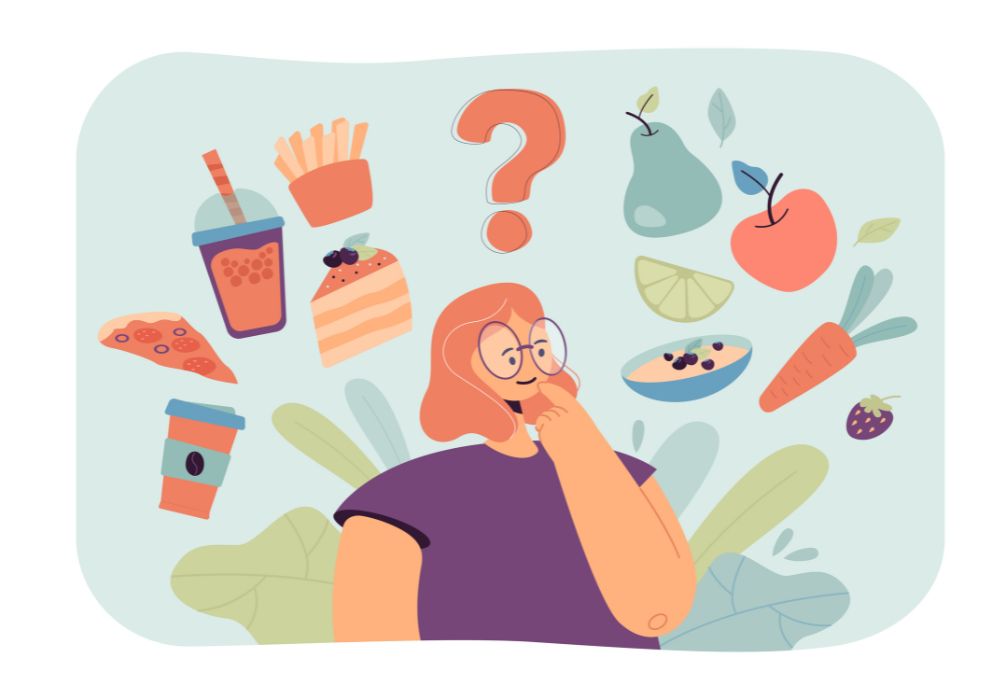In recent years, the connection between nutrition and mental health has gained significant attention in both scientific research and popular media. While it has long been known that a balanced diet is crucial for physical health, emerging evidence suggests that what we eat also profoundly impacts our mental well-being. This blog will explore the relationship between nutrition and mental health, highlighting the essential nutrients and dietary patterns that contribute to a healthy mind.
The Brain-Gut Connection
The brain-gut connection, often referred to as the “gut-brain axis,” plays a pivotal role in understanding how nutrition affects mental health. The gut is sometimes called the “second brain” because it contains millions of neurons and produces neurotransmitters like serotonin, which regulate mood. A healthy gut microbiome, nurtured by a balanced diet, can positively influence brain function and emotional health.
Essential Nutrients For Mental Health
- Omega-3 Fatty Acids: Omega-3 fatty acids, found in fatty fish like salmon, walnuts, and flaxseeds, are critical for brain health. These essential fats are components of cell membranes in the brain and have anti-inflammatory properties. Research has shown that omega-3s can help reduce symptoms of depression and anxiety.
- B Vitamins: B vitamins, particularly B6, B12, and folate, are vital for brain function. They play a crucial role in producing neurotransmitters like serotonin and dopamine, which regulate mood. A deficiency in these vitamins can lead to symptoms of depression and cognitive decline. Foods rich in B vitamins include leafy greens, legumes, eggs, and lean meats.
- Vitamin D: Often referred to as the “sunshine vitamin,” vitamin D is essential for mental health. Low levels of vitamin D have been linked to an increased risk of depression and seasonal affective disorder (SAD). While sunlight is the best source of vitamin D, it can also be found in fortified foods and supplements.
- Antioxidants: Antioxidants, such as vitamins C and E, help protect the brain from oxidative stress and inflammation. Berries, nuts, seeds, and dark chocolate are rich sources of antioxidants that support brain health.
- Magnesium: Magnesium is a mineral that plays a role in over 300 biochemical reactions in the body, including brain function. Low levels of magnesium have been associated with increased anxiety and depression. Foods high in magnesium include whole grains, nuts, seeds, and leafy greens.
Dietary Patterns For Mental Well-Being
- Mediterranean Diet: The Mediterranean diet, rich in fruits, vegetables, whole grains, lean proteins, and healthy fats, has been linked to better mental health outcomes. Studies have shown that adherence to this diet is associated with a lower risk of depression and cognitive decline.
- Plant-Based Diets: Diets that emphasize plant-based foods, such as vegetarian and vegan diets, can also support mental health. These diets are typically high in fiber, antioxidants, and essential nutrients while being low in saturated fats and processed foods.
- Balanced Blood Sugar Levels: Maintaining stable blood sugar levels is crucial for mental health. Consuming complex carbohydrates, lean proteins, and healthy fats at regular intervals helps prevent blood sugar spikes and crashes that can affect mood and energy levels.
The Impact Of Processed Foods
While a nutritious diet supports mental health, a diet high in processed foods, sugars, and unhealthy fats can have the opposite effect. Processed foods often lack essential nutrients and contain additives that can disrupt the gut microbiome and contribute to inflammation. Studies have linked high consumption of processed foods with an increased risk of depression, anxiety, and cognitive decline.
Practical Tips For A Mental Health-Friendly Diet
- Eat a Variety of Whole Foods: Incorporate a wide range of fruits, vegetables, whole grains, lean proteins, and healthy fats into your diet to ensure you get all the essential nutrients.
- Stay Hydrated: Dehydration can affect cognitive function and mood. Aim to drink plenty of water throughout the day.
- Limit Processed Foods and Sugars: Reduce your intake of processed foods, sugary snacks, and beverages to support a healthy gut and stable blood sugar levels.
- Practice Mindful Eating: Pay attention to what and how you eat. Mindful eating can help you make healthier food choices and improve your relationship with food.
Conclusion
The role of nutrition in mental health is a vital and growing area of research. A balanced diet rich in essential nutrients can support brain function, regulate mood, and reduce the risk of mental health disorders. By making mindful food choices and prioritizing whole, nutrient-dense foods, we can nourish not only our bodies but also our minds.
Take The Next Step Towards Better Mental Health
At Mental Marvels, we believe that a balanced diet is a cornerstone of mental well-being. Are you ready to take the next step in nurturing your mind through nutrition? Visit Mental Marvels to discover more insights, practical tips, and expert guidance on optimizing your diet for mental health. Join our community today and embark on a journey towards a healthier, happier you. Don’t wait—start transforming your mental health through better nutrition now!





